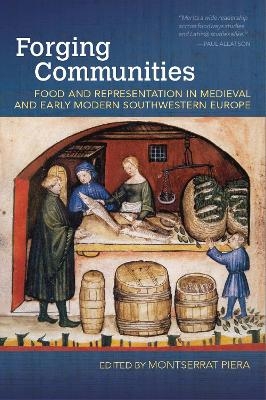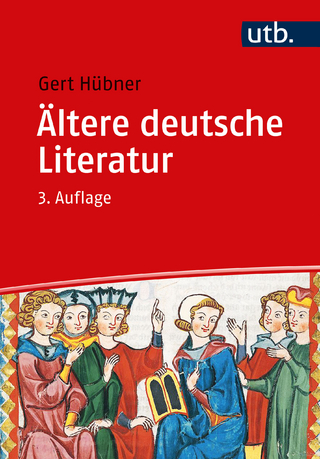
Forging Communities
Food and Representation in Medieval and Early Modern Southwestern Europe
Seiten
2018
University of Arkansas Press (Verlag)
978-1-68226-068-5 (ISBN)
University of Arkansas Press (Verlag)
978-1-68226-068-5 (ISBN)
- Titel z.Zt. nicht lieferbar
- Versandkostenfrei innerhalb Deutschlands
- Auch auf Rechnung
- Verfügbarkeit in der Filiale vor Ort prüfen
- Artikel merken
Explores the importance of the cultivation, provision, trade, and exchange of foods and beverages to technological advancement, conquest, and maritime exploration. These essays show how the sharing of food and drink forged social, religious, and community bonds, and how ceremonial feasts strengthened ties and solidified ethnoreligious identity.
Forging Communities explores the importance of the cultivation, provision, trade, and exchange of foods and beverages to mankind’s technological advancement, violent conquest, and maritime exploration. The thirteen essays here show how the sharing of food and drink forged social, religious, and community bonds, and how ceremonial feasts as well as domestic daily meals strengthened ties and solidified ethnoreligious identity through the sharing of food customs. The very act of eating and the pleasure derived from it are metaphorically linked to two other sublime activities of the human experience: sexuality and the search for the divine.
This interdisciplinary study of food in medieval and early modern communities connects threads of history conventionally examined separately or in isolation. The intersection of foodstuffs with politics, religion, economics, and culture enhances our understanding of historical developments and cultural continuities through the centuries, giving insight that today, as much as in the past, we are what we eat and what we eat is never devoid of meaning.
Forging Communities explores the importance of the cultivation, provision, trade, and exchange of foods and beverages to mankind’s technological advancement, violent conquest, and maritime exploration. The thirteen essays here show how the sharing of food and drink forged social, religious, and community bonds, and how ceremonial feasts as well as domestic daily meals strengthened ties and solidified ethnoreligious identity through the sharing of food customs. The very act of eating and the pleasure derived from it are metaphorically linked to two other sublime activities of the human experience: sexuality and the search for the divine.
This interdisciplinary study of food in medieval and early modern communities connects threads of history conventionally examined separately or in isolation. The intersection of foodstuffs with politics, religion, economics, and culture enhances our understanding of historical developments and cultural continuities through the centuries, giving insight that today, as much as in the past, we are what we eat and what we eat is never devoid of meaning.
Montserrat Piera is associate professor of Spanish and Portuguese at Temple University and editor of Remapping Travel Narratives, 1000–1700: To the East and Back Again.
| Erscheinungsdatum | 05.11.2018 |
|---|---|
| Reihe/Serie | Food and Foodways |
| Zusatzinfo | 2 images |
| Verlagsort | Fayetteville |
| Sprache | englisch |
| Maße | 152 x 229 mm |
| Gewicht | 542 g |
| Themenwelt | Sachbuch/Ratgeber ► Essen / Trinken ► Allgemeines / Lexika / Tabellen |
| Geisteswissenschaften ► Archäologie | |
| Geisteswissenschaften ► Geschichte ► Allgemeines / Lexika | |
| Geschichte ► Allgemeine Geschichte ► Mittelalter | |
| Sozialwissenschaften | |
| ISBN-10 | 1-68226-068-2 / 1682260682 |
| ISBN-13 | 978-1-68226-068-5 / 9781682260685 |
| Zustand | Neuware |
| Haben Sie eine Frage zum Produkt? |
Mehr entdecken
aus dem Bereich
aus dem Bereich
eine neue Geschichte des Mittelalters
Buch | Hardcover (2023)
C.H.Beck (Verlag)
38,00 €


